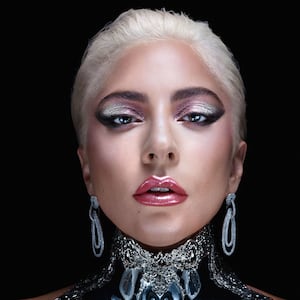Rihanna announced her new line of Fenty skincare with a close-up portrait showing the singer’s seemingly pore-less face, made up with only a bit of glossy lipstick and natural highlights courtesy of the sun shining down on her. Anyone would want that glow. As one Instagram commenter put it, “My skin became better just by looking at this.”
In less than three years, Rihanna has built a $3 billion beauty empire with her line of makeup, beloved for its inclusive range of foundation shades appropriate for a wide range of skin tones.
While most of the world can only dream of Rihanna-level confidence—this is the woman who dressed up as the pope for the Met Gala after all—Fenty brings fans closer to the singer. Despite her unabashed coolness, Rihanna boasts a come-as-you-are approach when marketing her products. They are made for everyone.
It’s an infectious sentiment, and one that draws in cash. But can it work for skincare? Some fans are dubious after learning that the first three Fenty Skin releases—a cleanser, toner, and moisturizer—contain the slightly controversial ingredient of fragrance.
“Fragrance in skincare for me is so important because it’s a crucial part of the experience,” Rihanna said in a YouTube announcement of her line. “It’s a huge part of the texture, the lathering, whether you’re patting on toner, I want you to always feel triggered and have an emotional connection to that experience.”
She went on to say that “the thread line and throughline” for her brand is “that the fragrance is always warm and clean, it’s never perfume-y. . .there will never be more than 1 percent of a synthetic fragrance [in the products].”
Tiny fragrance molecules can cause big problems for some people, especially those who suffer from skin allergies. “For some people, fragrance in skincare is fine,” Dr. Charlotte Birnbaum of New York’s Spring Street Dermatology told The Daily Beast. “[But] for those with sensitive or eczema-prone skin, fragrance can lead to an allergic or irritant reaction of the skin. Fragrances account for 30-40 percent of allergic reactions to cosmetic products.”
A 2016 study found that over 34 percent of a sampled population “reported health problems, such as migraine headaches and respiratory difficulties, when exposed to fragranced products.”
Even trickier, the word “fragrance” on an ingredients list could actually be a blend of many different additives, as the FDA does not require skincare companies to disclose what chemicals are used. That information is considered a “trade secret,” something considered protected under law.
This week, the first reviews for Fenty Skin began to trickle in from beauty editors and influencers. Tiara Willis, known as @MakeupforWOC on Twitter, was one such personality who got to test the products for a month before the embargo broke. The licensed esthetician posted a thread of her thoughts on Fenty for her 232,000 followers. It quickly went viral.
“ALL of the Fenty Skin products have fragrance,” Willis wrote in her thread. “You will notice it. This can be problematic for some... the Fenty Skin products broke me out in small red bumps and my face stung.”
Willis added that she’s a huge Rihanna fan who “would fight anyone that says something bad about her” and loved “everything else” about the line. “I have dry, sensitive, acne prone skin for reference. I was so hurt y’all. I hope they come out with a fragrance free version.”
The tweet was met with predictable ire from Rihanna stans, who mistook her review for overt criticism. Others came to Willis’ defense, and many noted that fragrance has long been a prohibited ingredient when it comes to fighting acne.
Rihanna is hardly the first celebrity whose beauty line has drawn skepticism. Last year, Kylie Jenner came under fire for selling a “Walnut Scrub,” which armchair estheticians on Twitter quickly called out as too harsh for regular use. (Dermatologists agreed the ingredient can cause micro-tears and other skin injuries.) Her line also lists fragrance as an ingredient.
Other brands use fragrance, too: the famously lux Crème de la Mer Moisturizer, which costs $180 and has fans like Jennifer Lopez, contains it. So do products from Lancôme, Ponds, and St. Ives.
“There’s been some hate because people may interpret my tweets as attacking the brand, which isn’t something I would do!” Willis wrote in an email. “I love Rihanna and the Fenty corporation. I am a supporter of their message of inclusivity and ethical values. Since I founded Makeup For WOC when I was 14, I’ve always been a vocal supporter of black owned businesses. However, brand loyalty will never affect my integrity and the relationship I have with my audience.”
Willis added that the brand might be best for “those who love Fenty Beauty makeup and have minimal to none inflammatory skin conditions. Skincare cannot be one size fits all.”
True, though when celebrities hedge their bets on making money off of products, the items must appeal to the broadest possible audience. Those who are opting out seem to be in the minority—as High Snobiety reported, the hype is so great that products are reselling on eBay for as much as $550.
“I think the mass market that Rihanna appeals to is going to be fine with these products,” Dr. Michael Gold, a Nashville dermatologist, said. “But there needs to be almost a disclaimer—if you have sensitive skin or atopic dermatitis, be careful. If you want to [try it out], test it first on the inner part of your arm and make sure there’s no reaction.”
“When celebrities start skincare lines, I think it’s great if it builds awareness for taking care of your skin,” Dr. Gold added. “Celebrities have gotten bashed for what they do to their skin—too much of this and that, sometimes I want to smack their doctors—so anything that is positive, I am all for.”







